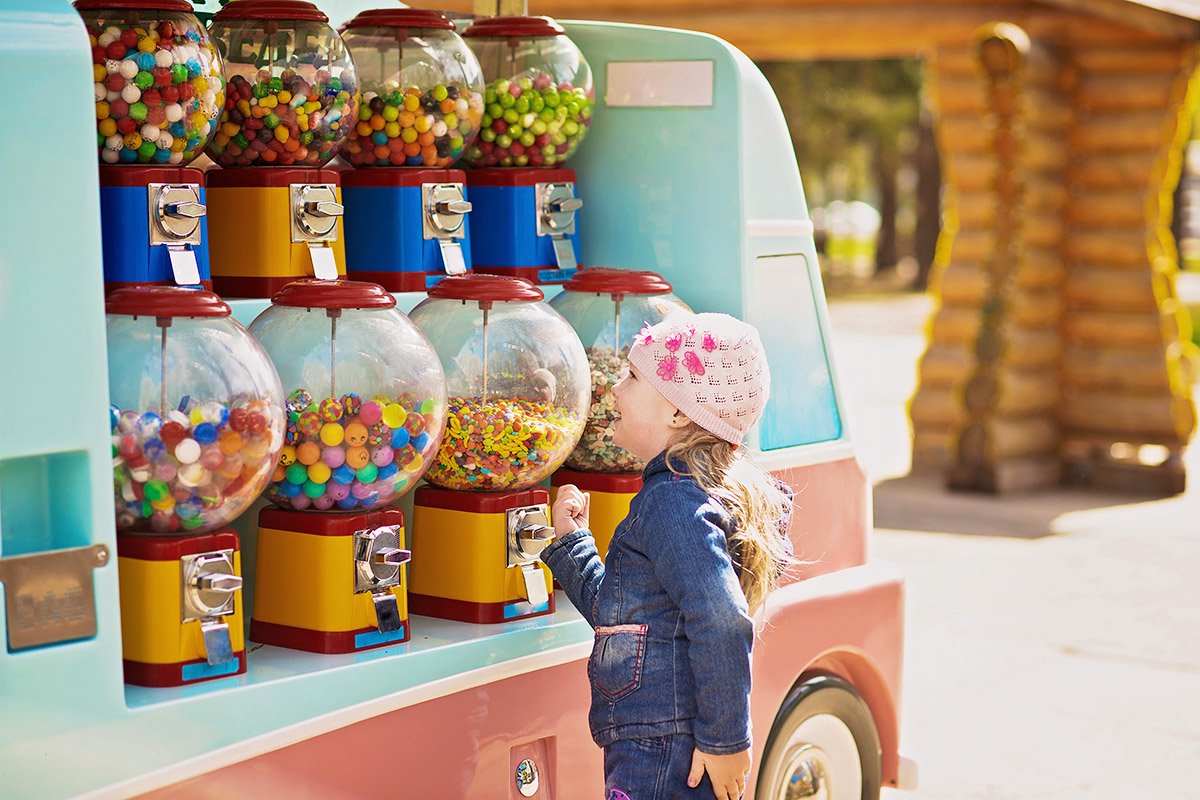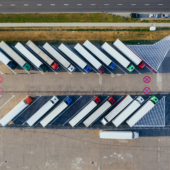by Tiffani Sherman
Contributor
Vending machines allow us to get what we need when we need it without having to interact with people.
They also can be money makers for the machine’s owner.
While the pandemic has changed the industry, owning and operating vending machines is big business, often providing passive income without any specialized skills. It’s also called automatic merchandising.
Basically, all you need to get started is some startup money to buy a machine, a good location and the right products. This post will lead you through the process.
Like many other things, the pandemic hurt the vending business. That makes sense since so many people transitioned to working from home.
Machines at professional sites, office venues, public venues, and schools saw sales declines. But on the flip side, locations where essential workers were onsite had the best sales and some even showed an increase in revenue from 2019.
Revenue for the vending machine industry was $13.3 billion in 2020, a 45% decline from the 2019 revenue of $24.2 billion.
That erased a decade of consecutive sales and revenue gains, according to the 2021 Automatic Merchandiser’s Annual State of the Industry Survey .
There were 1,740,604 vending machines operating in 2020, down from the 2,175,756 vending machines in service in 2019 in a variety of locations including:
“The pandemic dramatically changed the vending business, if you were one of the lucky ones to survive,” said Scott Ausmus, director of manufacturing for National Entertainment Network, Inc. and president of the National Bulk Vendors Association.
Some stores, Ausmus said, did not want the machines to be touched during the pandemic and there were a lot of requests to remove machines from their locations.
Cold beverages were the top-selling product category. A majority of vending machines involve food and beverage products including sodas, coffee, snacks and candy. Sales were directly tied to workers being present.
During COVID-19, machines popped up selling masks and hand sanitizer, and the number of machines accepting payments other than cash increased.
At places like airports, vending machines often sell tech accessories and travel essentials like neck pillows, blankets and eye masks. Laundry rooms in residential buildings often have machines with detergent and fabric softener.
With many offices, businesses and other public spaces closed or restricted due to the coronavirus pandemic, the vending industry is certainly taking a hit, however the annual report showed unattended micromarkets helped prevent a freefall.
Ausmus said the family entertainment sector is starting to come back, especially with big game rooms, so vending machines are showing gains again there. Many restaurants closed, so machine owners in those places suffered big losses.
Even with the pandemic, many factors make owning a vending machine an attractive business venture.
The startup costs are relatively low, sometimes around $2,000. The work is flexible and doesn’t require much day-to-day involvement. The risk is comparatively low and there is growth potential.
Ausmus grew up in the vending business. The machines he sells and operates are the novelty kind, offering things like stuffed animals, toys and gumballs. Many are in restaurants and entertainment venues like bowling centers.
While the startup costs are low and the income is often passive, owning vending machines is not without risk. You must understand your own financial situation and know how much you can afford to invest.
“Be sure you have a solid foundation with the locations you are doing business with,” Ausmus advised. “It is a big investment and if the location fails and closes, it is tough to find a new home for the assets today.”
There is the cost of the machine, the cost of inventory, personnel to keep it stocked, maintenance and more.
The more perishable the product and the busier the area, the more of your time the machine will take.
“If (your machine location has) a big break room and a lot of employees, you would have to be there once a day to fill your machines up because that’s how busy they are,” Ausmus said. Other machines like toys and candy don’t require as much restocking.
One of the first steps in starting a vending machine business is finding your niche and deciding what to sell. That takes a bit of research and knowing who your customer is.
“If you buy the wrong product, it won’t move and you won’t make any money and you certainly don’t want to throw (product) away,” Ausmus said.
He said supply chain issues are causing problems getting the right product and keeping it in stock, especially when it comes to novelties.
“It is hard to get the toys needed to fill the machines and costs have gone up 30%, meaning we will need to charge more per play.”
Vending machine businesses are scalable, meaning it’s possible to start small and expand. You don’t have to wait for payments because customers pay when they purchase an item.
To put yourself in the best position to be profitable means finding the right location.
Either a machine needs to be in places where there is a lot of foot traffic or where people might not be able to get away to grab something they need or want.
Pre-pandemic, high quality places meant schools and universities, malls, and office parks. Sales at those locations plummeted, but the annual industry report said how and when people return to those places would determine how much the vending and micro market sectors recover.
Think about where people need to wait. While waiting, they may get hungry or thirsty. Ausmus’ novelty machines need kids around.
“One of the hardest things to do is to locate a location,” Ausmus said.
Location can be about trial and error. There’s not much harm in moving a poorly performing vending machine to another location.
But in today’s world with costs rising and shortages happening, Ausmus said finding that right location is even more difficult.
When looking for locations, be prepared to approach the owner or landlord with a business plan for the machine.
Also be prepared to:
Then you will need an actual vending machine. There are several types, and prices vary depending on what is in the machine, whether the products need refrigeration or heating, and the interactivity.
Buying directly from a manufacturer or supplier is one option, as is purchasing on a secondary market. Some companies also rent machines. Ausmus cautioned to make sure there are spare parts and support available for what you buy.
Machines range from about $1,500 for a used or refurbished machine to several thousands for a new, high-end machine with many technical features.
Some machines have:
During the pandemic, the annual report showed the use of VMS increased as operators used downtime to upgrade the technology they used both in their machines and for data collection.
While owning vending machines does not require any special skills, it is a business.
You will need inventory and someone to keep the machine stocked and maintained. This may require a van or truck.
Perishables need to be stocked more often than other items. Learning some basic maintenance skills could keep you from having to hire someone if there is a problem with the machine.
Different types of machines have different capabilities. Some take only cash while others will process credit or debit cards. Some models have touch screens or voice capabilities.
“Make sure that you have your phone number on the machine, and that the store location knows your phone number,” said Ausmus. “If somebody didn’t get what they wanted, make sure the store can give them a refund and you pay the refund back to that store. Then get out there as soon as you can to fix the machine so that you can continue to make money.”
Automatic merchandising isn’t for everyone, but owning and operating a vending machine can be a good business. Being able to retrieve the money you make and restock your machines easily is the key.
“Then you only work probably three days a month, basically on the whole gig,” said Ausmus. “Three to four days a month can make somebody a good little extra income.”
Tiffani Sherman is a Florida-based freelance reporter with more than 25 years of experience writing about finance, health, travel and other topics.
Ready to stop worrying about money?
Get the Penny Hoarder Daily
Privacy Policy
© 2022 The Penny Hoarder. – All rights reserved.
Privacy Policy and Terms of Service | Do Not Sell My Personal Information | Cookies Settings






